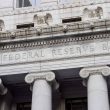by Jurrien Timmer, Director of Global Macro, Fidelity Investments
Not yet, says Jurrien Timmer. But investors should keep their eyes on earnings.
Key takeaways
- Stocks are searching for their equilibrium, which has been a rapidly moving target as the Fed's current rate-hike cycle continues to unfold.
- Despite the uncertainty in the markets, there is little evidence yet to support the idea that the US economy is heading into a recession. Second quarter earnings season will be key.
- There could be risks to the downside for stocks if earnings start to fall. On the other hand, if the persistent inflation pressures abate, there could be a significant relief rally for both stocks and bonds.
- Investors may be well-served by maintaining an appropriately diversified portfolio and keeping a long-term perspective.
The Viewpoints editorial team sat down recently with Jurrien Timmer, Fidelity's director of global macro, to hear his take on the outlook for US stocks over the second half of the year. The following interview has been edited for length and clarity.
Viewpoints: Jurrien, anyone who follows you on social media knows that you love the great outdoors. How would you describe what's happening in the markets and the economy right now through the lens of Mother Nature?
Timmer: Markets go in cycles, and so does nature. I think of it as a natural rhythm. We have the seasons—we go from summer, to fall, to winter. And similarly, you know, the markets can't always go up—they go down too.
Viewpoints: What season are we in right now?
Timmer: We're in fall, I would say.
Viewpoints: Investors have felt a lot of pain recently. Do you think we've seen the worst, or is there still more pain yet to come?
Timmer: It's always hard to predict these things, but I think we may be looking at a prolonged trading range. What we've had so far is investors changing their minds about how much they're willing to pay for earnings. So the price-to-earnings ratio, or the P/E ratio, has gone down—as it should because interest rates are rising and the Fed is tightening liquidity.
But the earnings part—the "E" of the P/E, has stayed at a pretty good level. So far it has just been a reset of the P/E ratio—of how much investors are willing to pay for earnings. If that's all we're going to get, then I'm fairly satisfied that we've seen the worst of it.
Viewpoints: Do you think we're headed for a recession in the next 6 to 12 months, or further down the line?
Timmer: I personally don't think so. I don't see a lot of evidence to suggest that we are. Consumers are employed. The jobless rate is very low. Consumers still have savings from the pandemic era, but inflation is eroding disposable income, so people have less money to spend. Therefore, they're choosing how to spend it, and we're seeing that consumers are spending less money on big-ticket items like TVs and furniture, and instead they're spending it on travel.
So there's a change in how consumers are spending. But from what I'm seeing there's very little evidence to suggest that we are headed headlong into a recession.
Viewpoints: But if we're in fall, does that mean that winter is coming eventually? If so, why should investors hang in?
Timmer: Well, that is one difference between the seasons and the market cycle. In the markets, a fall doesn't always mean that winter's coming. Or, maybe winter is coming but it's coming much later than we think, and maybe it'll be a really mild winter instead of a very severe winter. Maybe winter is already priced into the market.
There are so many nuances. That makes it almost impossible to try to time a portfolio on these things. So far, I'm not seeing the evidence to suggest that winter is coming anytime soon, or that it will be a particularly painful winter.
Viewpoints: You've been writing a lot lately about how important earnings are to the outlook for stocks. Why is that?
Timmer: I think that the whole game, going forward, comes down to earnings.
In my view, the P/E has experienced a full reset. The P/E ratio on the S&P 500 was 23 times earnings last year. It went down to 16 times earnings as of a few weeks ago. To me, that's a healthy reset.
But that reset is only as good as the "E" in the P/E. Earnings need to hold up, because if they don't, then stock prices are not done falling. So far, from what I'm seeing, earnings are holding up. We had 50% earnings growth last year as earnings recovered from the pandemic. That's come down to about 20% and is heading to 10% for 2022.
We're clearly seeing a slowdown—there's no question about it—that's fairly normal at this stage in the game. But there's a difference between a slowdown in earnings growth and an actual contraction in earnings. That's the difference between a recession and what we call a "soft landing." It's the difference between staying in fall, or even going back to summer at some point, or going into winter.
To me, what happens on the earnings side is going to be the big driver for stocks going forward.
Viewpoints: Let's get into your outlook for stock returns a bit more. What do you think we can expect for the second half of the year?
Timmer: Oftentimes, when the Federal Reserve is tightening policy by raising rates, the market is kind of stuck in a holding pattern. After the decline of the last few months, I think we're going to be in a holding pattern while the market waits to see how high the Fed will raise rates and whether it'll be a soft landing or a hard landing.
Viewpoints: What do you expect in terms of volatility?
Timmer: The last few months have seen outsized volatility not only in the stock market but in the bond market. I think we'll continue to have volatility because with every inflation and earnings release, investors are going to wonder, "Do we really know what the Fed is going to do? Will they go farther than we thought? And if they go farther in raising rates, will they break something in the economy in the process?"
Investors are always going to have that back-and-forth of wondering and doubting, and that's going to produce some volatility.
Viewpoints: What about wild cards? What are you watching that could potentially cause a surprise on the downside?
Timmer: On the downside, it would be earnings starting to break. Because in that case, instead of just one of these quick, shadow bear markets it could be a much longer one.
Viewpoints: On the other hand, what could cause a surprise on the upside?
Timmer: On the upside, it would be inflation starting to really drop off—at least on a rate-of-change basis. That would take a lot of pressure off the Fed, and that would give both the bond and the stock market a sigh of relief.
Viewpoints: What about areas of opportunity for investors? Are there any specific areas you're looking at?
Timmer: It's always important to have a well-diversified portfolio, right? I'm not a stock picker—I wouldn't even know where to begin. I like to have a diversified portfolio and that includes growth, value, some large-caps, some small-caps, some US, and some international. During the last few months, companies paying healthy dividends and with defensive business models—think of boring stuff like utilities and consumer staples and real estate—have been a good anchor for a portfolio.
I prefer a healthy combination of all of those areas in the stock portfolio, combined with some bonds. Bonds haven't been great lately, but at 3% they are certainly better looking than they were at 1% just 2 years ago.
Viewpoints: You've described your role as director of global macro as being essentially a storyteller. If we were to walk away from this conversation with a storyline, what would you want that to be?
Timmer: The storyline is to have a long-term perspective, especially at times when not everything seems to make sense over the short term. Seeing the forest through the trees is as important as ever.
For most investors who are saving for their retirement—whether through a 401(k) or some other means—it's to keep your eye on that long-term goal. When you do that, dislocations in the market like we've seen can offer opportunities to rebalance or right-size our portfolio, if that's something that we should have done but didn't.
About the expert

Jurrien Timmer is the director of global macro in Fidelity's Global Asset Allocation Division, specializing in global macro strategy and active asset allocation. He joined Fidelity in 1995 as a technical research analyst.
Copyright © Fidellty Investments














